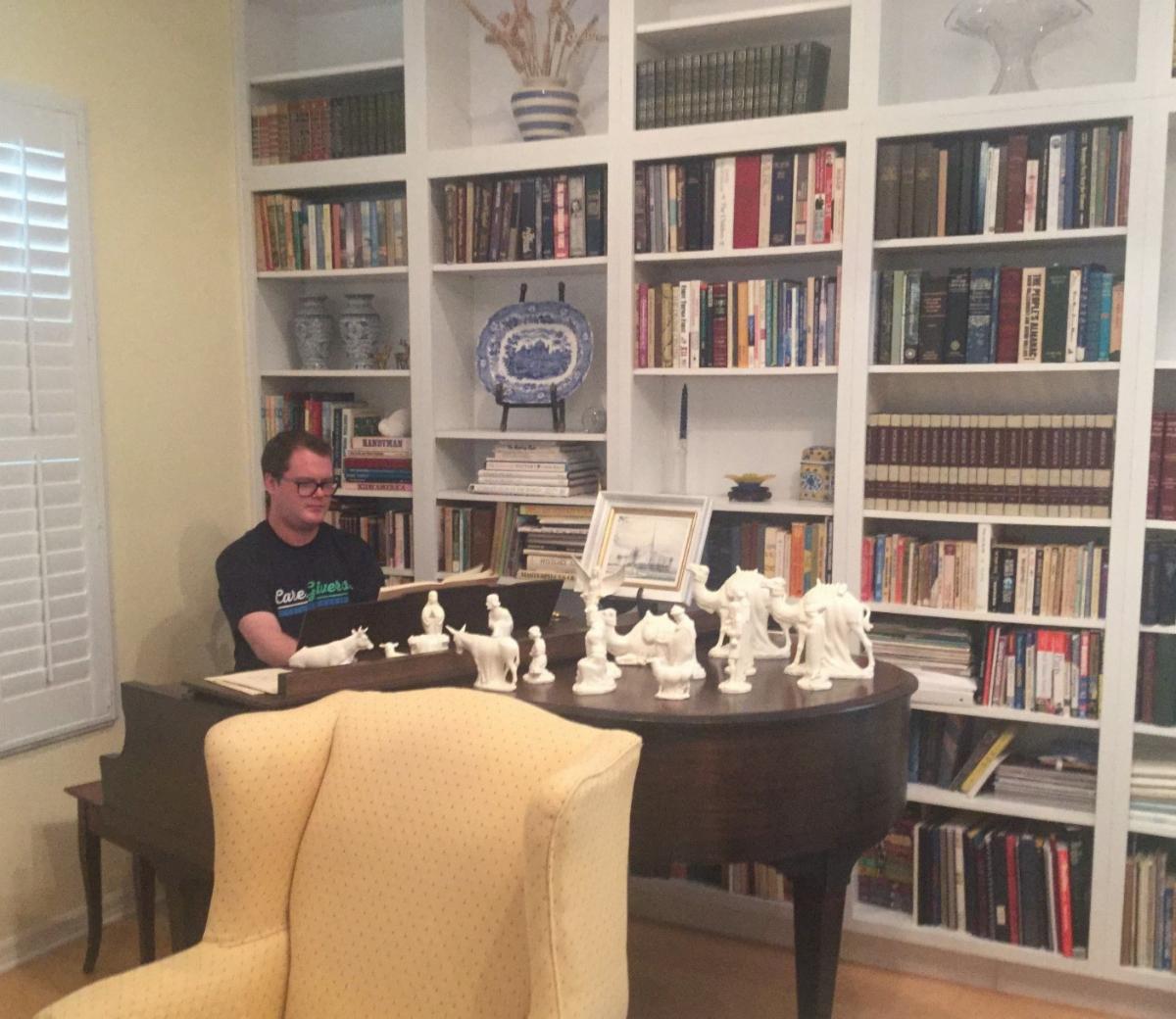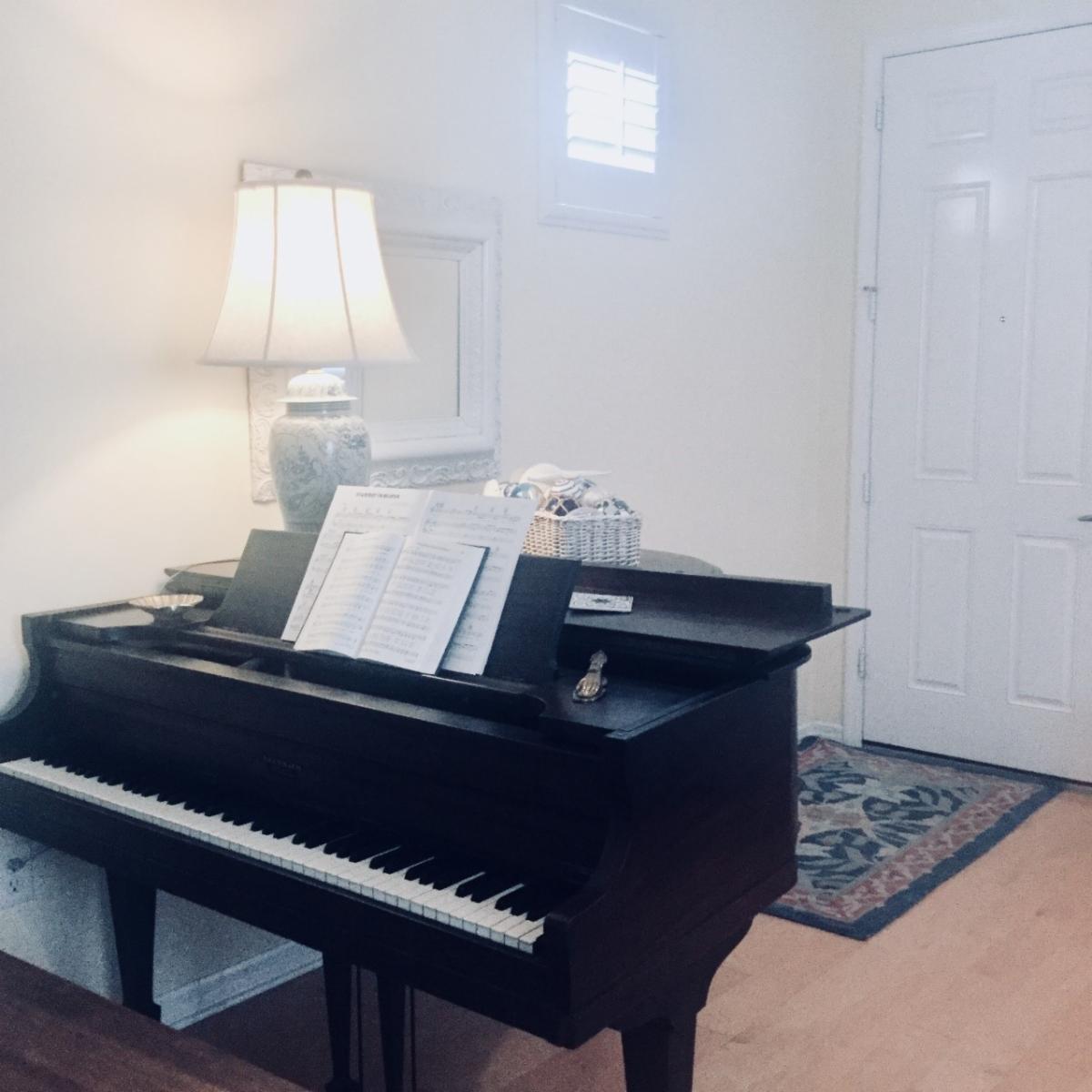FAMILY HISTORY ON A ROCK - Why is Grandpa Pole-Vaulting Barefoot
and in Bib Overalls?
"In all of us there is a hunger, marrow deep, to know our
heritage - to know who we are and where we have come from."
Alex Haley

My brother Lane and his family
orchestrated a magnificent family reunion for the descendants of my Farnsworth
grandparents in August. They used family history as a theme and created a wide
array of fun and engaging activities to help participants learn or remember the
stories of ancestors on that side of our family tree. These included "Family
History Jeopardy," "Word Search" with ancestors' names, and
"Compare a Face" from Ancestry, matching our parents' and aunts' and
uncles' countenances with earlier ancestors.
For the younger children, Lane and
his family organized "This Family Rocks!" They painted dozens of
rocks with names and pictures of senior family members and episodes of their
lives. The rocks were hidden in the grass and trees and the children were sent
out to find them, Easter-egg-hunt style. Once a child found a rock, he or she could
bring it back and share the story on it for a simple prize. Adults were
encouraged to study the rocks in preparation for Family History Jeopardy.
Later, the painted rocks were
auctioned to family members to raise funds to cover reunion expenses. That's
how I came to own the rock pictured above.
The story behind this particular
painted rock is fascinating. In 1924, five years before my father was born, the
Farnsworth family lived in a small village named Colonia Garcia, high in the
Sierra Madre Mountains of northern Mexico. Colonia Garcia was among a dozen or
so small mountain settlements and two larger valley towns largely populated by
American ex-pats.
On summer holidays like the 4th of
July, residents of those towns and settlements would gather for picnics,
rodeos, horse races, and athletic contests. The rivalry between the
mountaineers and the valley dwellers was intense. However, because of their
scant numbers, teams representing the mountain settlements were usually at a
serious disadvantage when pitted against teams from the larger valley towns.
The specific competition on this
occasion was a track meet, to which the various communities sent their best
athletes, usually older teenagers and young adults, decked out in colorful
matching track uniforms. Unfortunately, the village of Colonia Garcia was able
to send but a single competitor, namely 35-year-old Byron Farnsworth, my
paternal grandfather.
You can almost imagine the
snickering and eye-rolling by the young, sleek, and well-dressed athletes from
the valley teams when "Old Man Farnsworth" showed up wearing work
boots and bib overalls, and especially when he announced that he (alone) was
the team from Colonia Garcia.
Byron wasn't able to compete in the
team events such as the relays, but his natural speed and strength, fortified
by the rigors of living and working in the mountains, served him well in the
individual events. He may not have looked like a track-and-field athlete in his
bib overalls, but he managed well enough.
He only owned one pair of shoes,
the boots he wore every day at work. He competed in his boots when throwing the
shot put or javelin, but when it came time to race or jump, he would peel off
his boots and run or jump barefoot.
Competing alone all day, he amassed
enough points in enough events to put him close to the lead against the other
teams. It would all come down to the pole vault. Those were the days of bamboo
poles and cross-bars, and hard landings in pits of sawdust or pine shavings.
With the passage of a hundred years
since then, we no longer have a record of how high Grandpa pole vaulted that
day, but this we know for sure: Byron Farnsworth, clad in bib overalls and bare
feet, cleared the highest bar when the others could not. He ended up winning
the pole vault event and, as a result, the entire track meet.
Singlehandedly.
Army of One.
You go, "Old Man
Farnsworth!" Show those young-buck valley boys what a mountain man can do,
even in bare feet and bib overalls.
And
today, I own the rock that tells the story.
Now I can make sure that all my children and grandchildren will remember
this episode for generations to come.
I
sometimes wonder, if I could talk to my grandpa today, what life lessons he
would share with me from that day at the track meet. He might say something like:
·
Farnsworths can do
hard things.
·
Farnsworths aren’t
afraid to stand alone if necessary.
·
Farnsworths focus
on what’s inside of us, not what’s on the outside.
·
Farnsworths ignore
what others may be saying; we just quietly do our best.
·
Farnsworths are
never too old to get out there and try.
·
Farnsworths aren’t
embarrassed of where we’re from or the work we do.
·
Farnsworths play
as hard as we work.
Thanks,
Grandpa Farnsworth, for your courage and fine example. And thank you, Lane and Nalene and your
family, for a great reunion and my beautiful rock, a memento of what it means
to be a Farnsworth.

